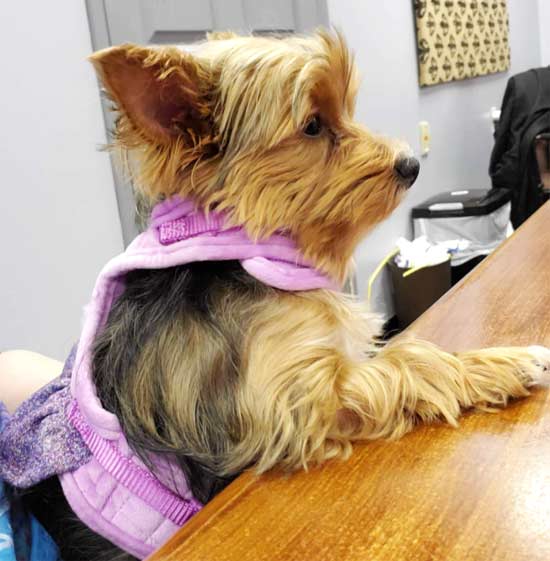 What Is Hospice Pet Therapy?
What Is Hospice Pet Therapy?
Pets have a longstanding history of providing faithful companionship and showing for the humans in their lives. This companionship and love create a powerful emotional bond between animal and human. The bonds that humans share with pets result in very positive effects: reduced anxiety and stress, increased feelings of relaxation, and an overall improved outlook on life. In seeking to provide patients with the best end-of-life care possible, many hospice organizations employ the use of animal companionship as a form of therapy. Pet therapy, also known as animal-assisted therapy, in the hospice setting uses the natural bond between humans and animals to provide comfort, peace, and soothing companionship to terminally ill patients.
The History of Pet Therapy
The first use of animals in a therapeutic setting dates back to the 1800s. Florence Nightingale observed that children and adults in psychiatric wards, when given the companionship of small animals, experienced greatly reduced levels of anxiety and stress. Her findings inspired others to employ the use of animals in therapeutic settings as a means of providing comfort and relaxation to patients.
Hospice pet therapy, using the longstanding bond between humans and animals, brings joy, humor, unconditional love, and soothing companionship to those on the end-of-life journey.
While Nightingale’s findings opened the door to the use of animals in a therapeutic setting, the work of Boris Levinson, regarded as the father of pet therapy, brought the use of pet therapy to the attention of the international medical community. Levinson, a renowned child psychotherapist, discovered that the presence of his dog had a remarkable effect on helping his young patients communicate. By Levinson’s dog simply being present, the children began to engage in more open dialog during therapy sessions. Levinson’s findings and continued study paved the way for further research into the impact of animals’ involvement in therapy and laid the foundations for the modern practice of pet therapy. How Animals Interact with Hospice Patients during Visits
How Animals Interact with Hospice Patients during Visits
Visitation between patients and animals promotes activity, conversation, and emotional connection. Often, simply the presence of the animal is all that is required to promote the positive effects; however, patients and family can interact with the pet therapy animals as they would with most any pet:
- Tossing a ball or toy for the animal to fetch
- Quietly enjoying the presence of the animal in silence
- Talking to, petting, hugging, holding, or cuddling with the animal
- Enjoying playful animal tricks and commands such as sitting, rolling over, or shaking hands
Physical Benefits of Hospice Pet Therapy
The close companionship of animals provides a relaxing and understanding presence to those on the end-of-life journey. Enjoying the presence and interacting with animals yields a host of physical benefits for patients:
- Helps reduce
- Reduces blood pressure
- Promotes an improved heart rate and total cardiovascular health
- Increased levels of overall comfort
Hospice pet therapy programs also have a significant impact on the overall range of motion and bodily strength of patients. Active movement can often be neglected, especially in older patients; however, pet therapy visits promote motion and activity as hospice patients play, cuddle, pet, and interact with their animal companion.
Social and Emotional Benefits of Hospice Pet Therapy
Animals also have a profound, measured impact on the social and emotional well-being of patients. The soothing presence and unconditional affection of an animal provides:
- Reduced feelings of loneliness
- Reduced feelings of depression
- Lower levels of anxiety
- Improved overall outlook on life and circumstances



